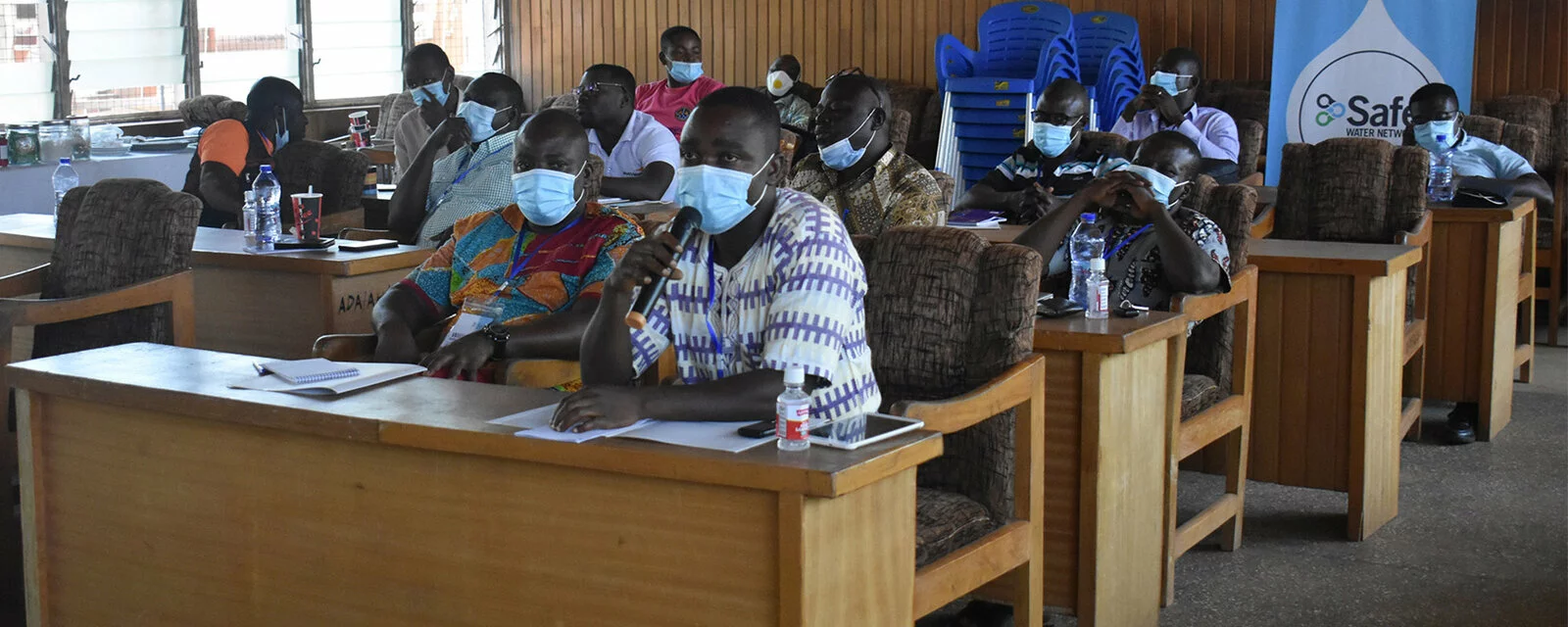Keeping Safe Water Flowing During COVID
COVID-19 presented numerous operational challenges for the Safe Water Network team in Ghana. During the height of the crisis, the government also issued a country-wide ‘free-water’ mandate, an edict we supported because many more people gained essential access to clean water during the worst of the pandemic.
But this government policy created two additional challenges. First, demand skyrocketed, and second, the revenue generated from the nominal fee that H2OME! water station consumers paid for safe water was no longer available to cover operating costs and the on-going maintenance required to keep the stations running properly.
According to Ruhiya Issah, the Field Services Capability Assistant Manager responsible for on-going upkeep of the forty-five stations in the Oti, Volta, Greater Accra and Eastern regions of Ghana, “It was challenging keeping up with the demand when safe water became free. At the same time, the stations were trying to implement COVID protocols, social distancing, and ensuring that consumers wore masks.”
“It wasn’t easy,” says Patrick Davor, the Tongor station operator, “because customers didn’t believe COVID was real. I had to do a lot of talking to convince the customers to wear their facemasks, as well as to encourage them to practice social distancing.”
Gloria Dzifa Aguze, Program Associate for Community Relations, agrees with Patrick. “There were many challenges to keeping safe water flowing at our locally-run stations. Our field teams were issued government IDs and special passes during the lockdown so that we could move from town-to-town to address local station operational issues.”
“We were juggling many issues at once,” Ruhiya says, “while at the same time having to field questions from various governmental authorities wanting status reports on station performance.”
Despite the long hours and challenges, Safe Water Network kept more than 100 H2OME! water stations operational throughout the pandemic. Ruhiya adds, “we even added hand-washing facilities to ensure that consumers washed their hands prior to fetching water.”
To make up for the revenue shortfalls, Safe Water Network secured funding from agencies, foundations, and individuals to cover the bulk of on-going operational costs. According to Gloria, several communities also offered to pay for utility bills and supplies. “They recognized that we all needed to pitch in during these challenging times.”
